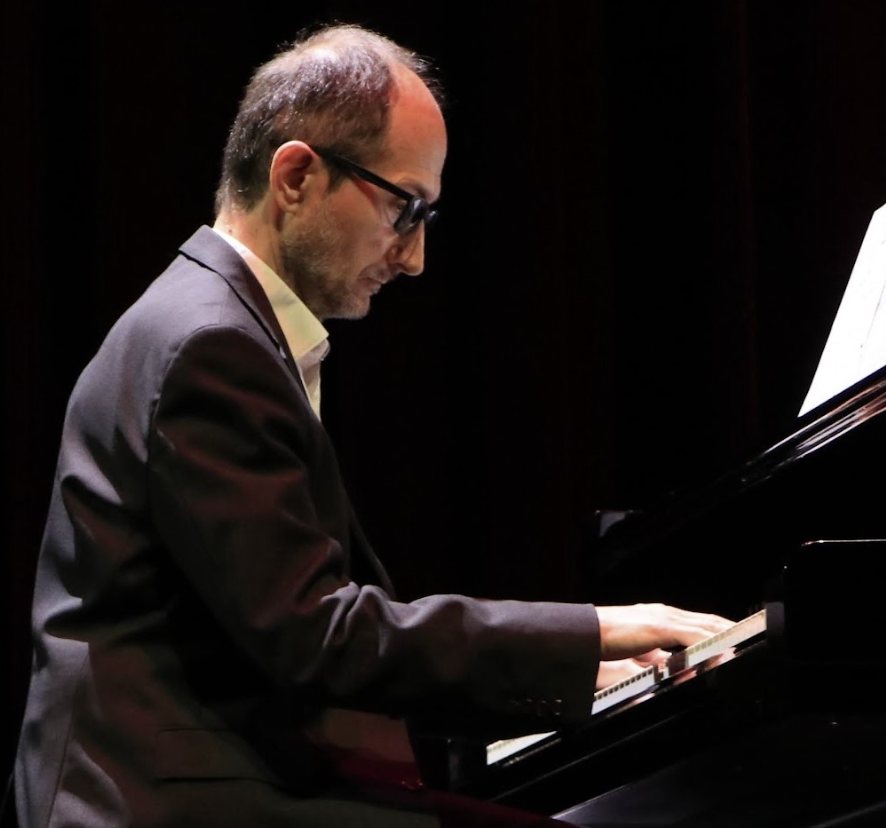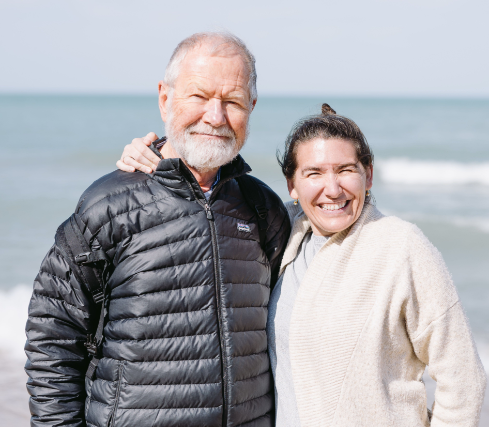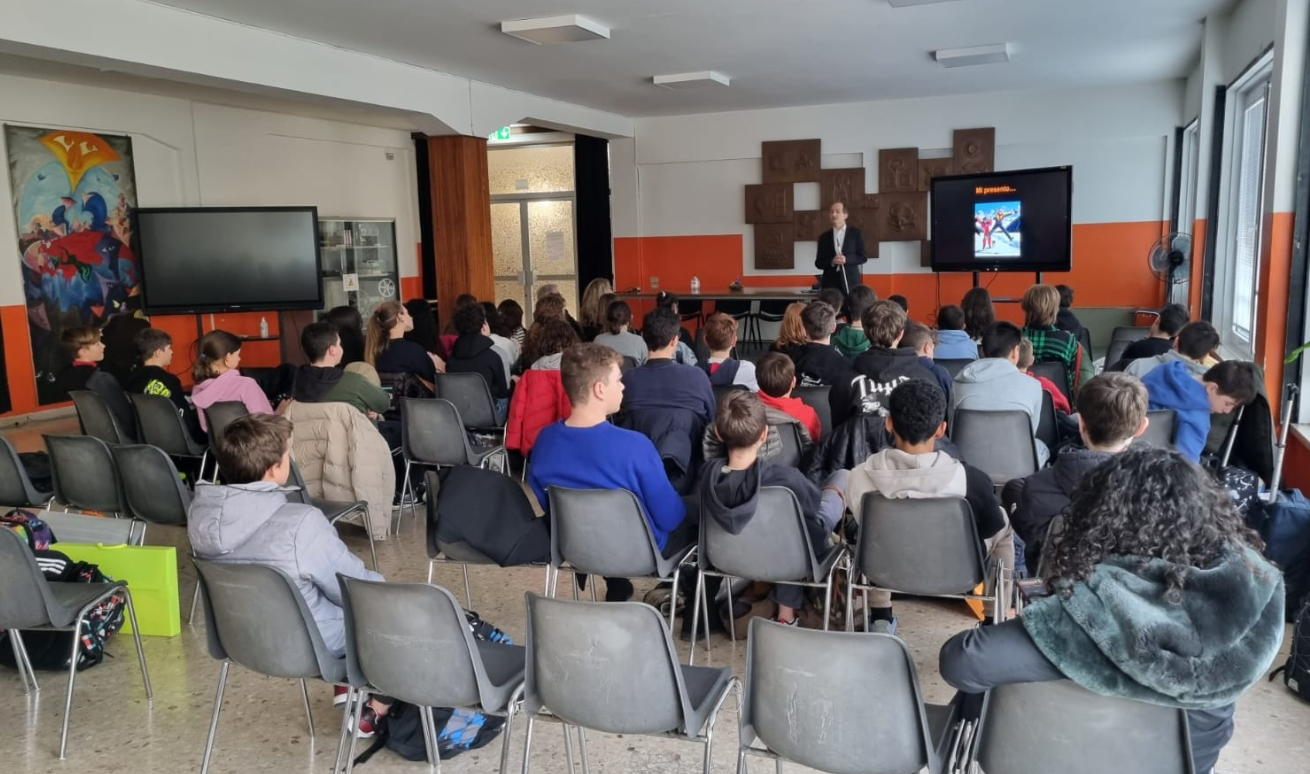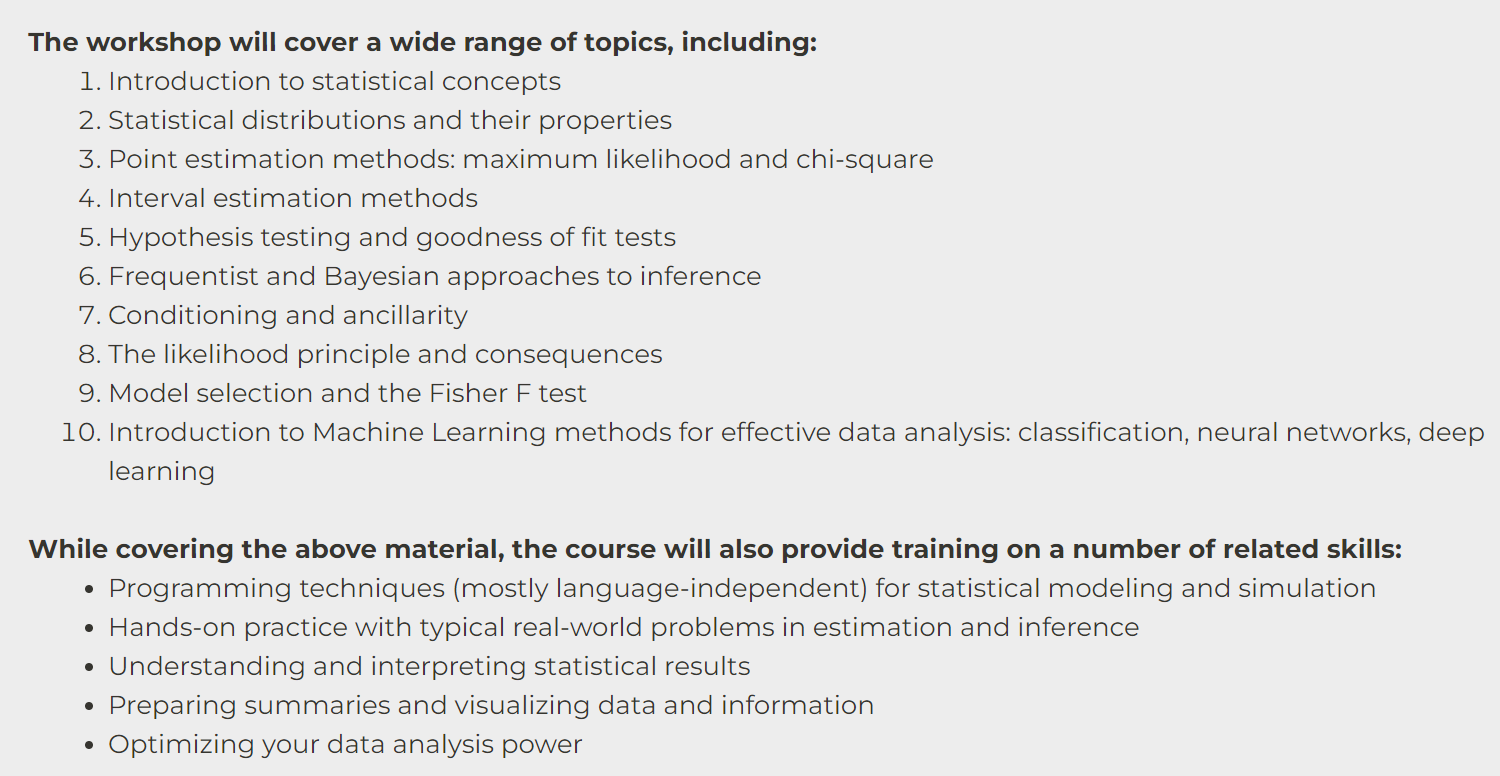March is here, and with it begins a season of intense travel for me - something which for some combination of reasons has become sort of a habit. First, workshops and conferences are rarely scheduled in the December-February period. Second, the Christmas vacations put a sort of break to all activities and disrupt the flow. Third, I teach a course in the first semester, which is now over. And fourth, INFN funding mechanisms imply that it is harder to travel in those months (yearly budgets close toward the end of November, and funds become again available only a bit after the new year starts).
Muon tomography is one of the most important spinoffs of fundamental research with particle detectors -if not the most important.
I recently held an accelerated course in "Statistical data analysis for fundamental science" for the Instats site. Within only 15 hours of online lectures (albeit these are full 1-hour blocks, unlike the leaky academic-style hours that last 75% of that) I had to cover not just parameter estimation, hypothesis testing, modeling, and goodness of fit, plus several ancillary concepts of high relevance such as ancillarity (yep), conditioning, the likelihood principle, coverage, and frequentist versus bayesian inference, but an introduction to machine learning! How did I do?
A calorimeter in physics is something that measures heat. However, there are mainly two categories of such objects: ones that measure macroscopic amounts of heat, and ones that measure the heat released by subatomic particles when they smash against matter. I am sure you guess which is the class of instruments I am going to discuss in this article.
A further distinction among calorimeters for particle physics is the one concerning the kind of particles these devices aim to measure. Electromagnetic calorimeters target electrons and photons, and hadronic calorimeters target particles made of quarks and gluons. Here I will discuss only the latter, which are arguably more complex to design.
Smashing protons
In the past two weeks I visited two schools in Veneto to engage students with the topic of Artificial Intelligence, which is something everybody seems to be happy to hear about these days: on the 10th of January I visited a school in Vicenza, and on the 17th a school in Venice. In both cases there were about 50-60 students, but there was a crucial difference: while the school in Venezia (the "Liceo Marco Foscarini", where I have been giving lectures in the past within the project called "Art and Science") was a classical liceum and the high-schoolers who came to listen to my presentation were between 16 and 18 years old, the one in Vicenza was a middle school, and its attending students were between 11 and 13 years old.
From tomorrow onwards (once or twice a week until February 5), I will be giving an online course on the topic of "
Statistical Methods for Fundamental Science" for the
INSTATS organization. This is a 5-day, 15-hour set of lectures that I put together to suit the needs of students and researchers who work in any scientific discipline, who wish to improve their understanding and practice of statistical methods for data analysis.
 Turning 60
Turning 60 On The Illusion Of Time And The Strange Economy Of Existence
On The Illusion Of Time And The Strange Economy Of Existence RIP - Hans Jensen
RIP - Hans Jensen 2026 Plans
2026 Plans







